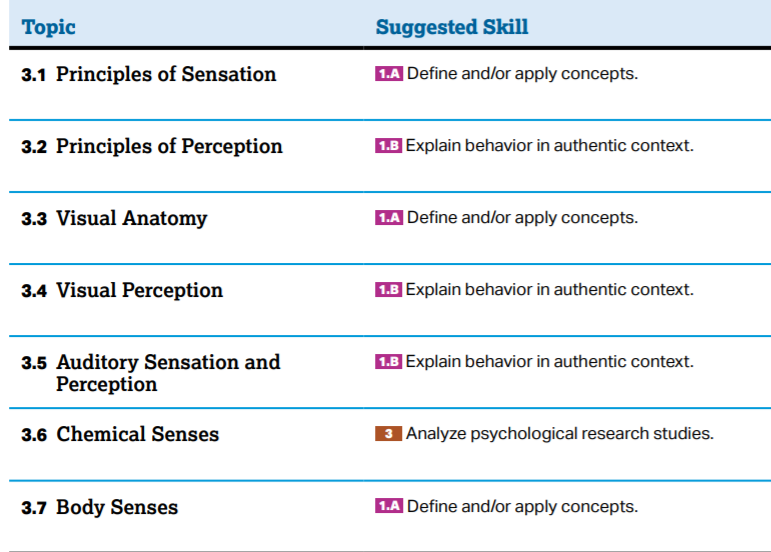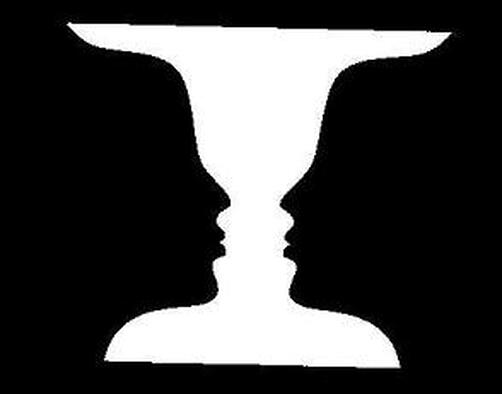Unit 3: Sensation and Perception
Sensation and Perception

Everything that organisms know about the world is first encountered when stimuli in the environment activate sensory organs, initiating awareness of the external world . Perception involves the interpretation of the sensory inputs as a cognitive process .
AP students in psychology should be able to do the following:
• Discuss basic principles of sensory transduction, including absolute threshold, difference threshold, signal detection, and sensory adaptation .
• Describe sensory processes (e .g ., hearing, vision, touch, taste, smell, vestibular, kinesthesis, pain), including the specific nature of energy transduction, relevant anatomical structures, and specialized pathways in the brain for each of the senses .
• Explain common sensory disorders (e .g ., visual and hearing impairments) .
• Describe general principles of organizing and integrating sensation to promote stable awareness of the external world (e .g ., Gestalt principles, depth perception) .
• Discuss how experience and culture can influence perceptual processes (e .g ., perceptual set, context effects) .
• Explain the role of top-down processing in producing vulnerability to illusion .
• Discuss the role of attention in behavior .
• Challenge common beliefs in parapsychological phenomena .
• Identify the major historical figures in sensation and perception (e .g ., Gustav Fechner, David Hubel, Ernst Weber, Torsten Wiesel) .
Resources
Sensation and Perception -DISCOVERING PSYCHOLOGY
Sensation & Perception - Crash Course Psychology #5
Homunculus - Crash Course Psychology #6
Perceiving is Believing - Crash Course Psychology #7
